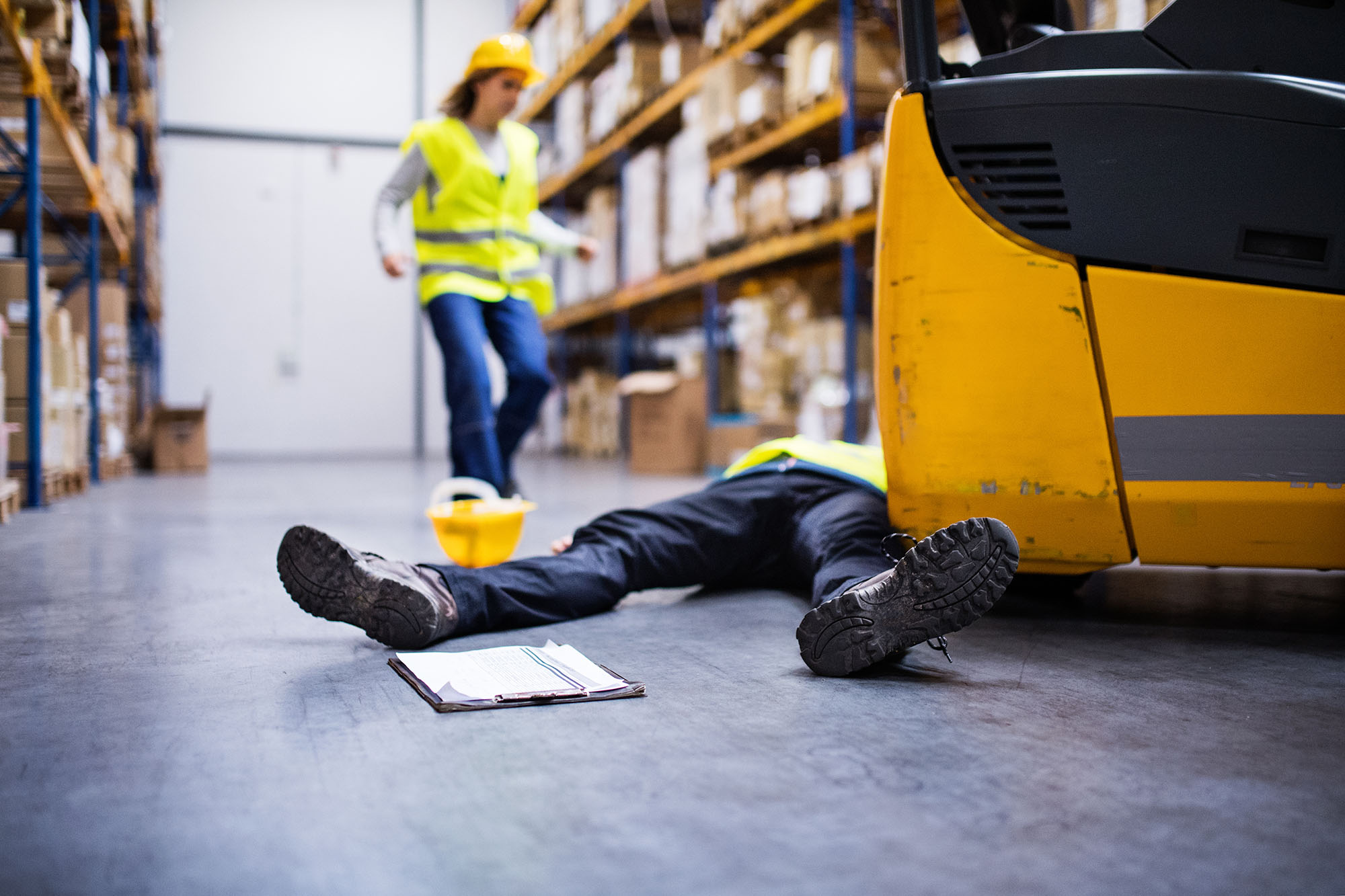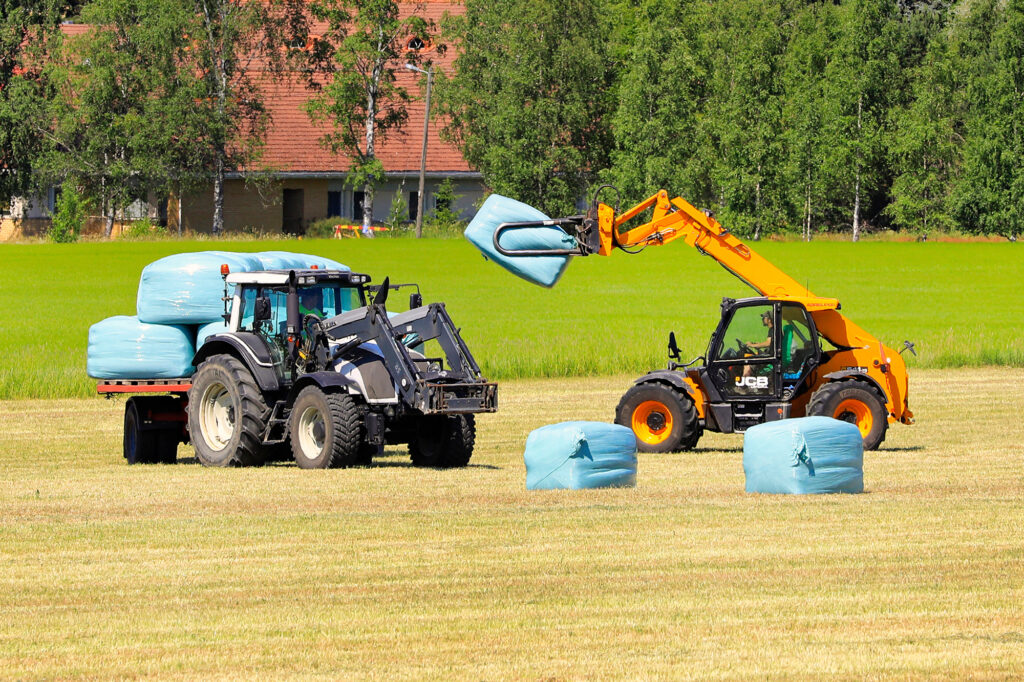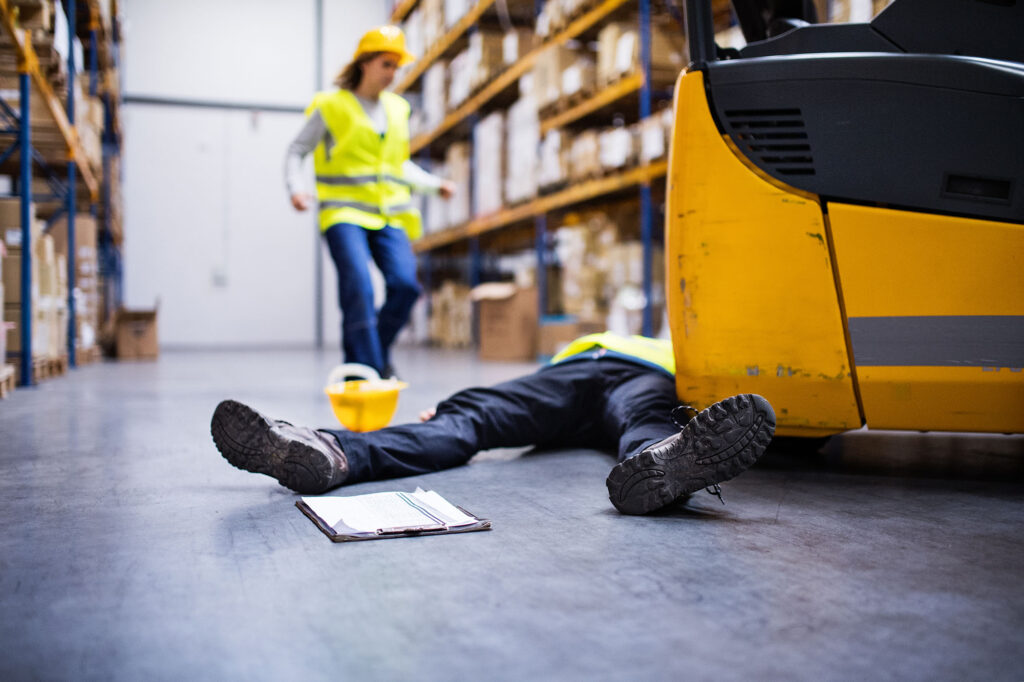Death and Fatal Accident at Work Compensation
If a Fatal Accident at work has killed a close family member of yours, you need a legal team who will give you the friendly support required. As well as bringing those responsible to justice with the full force of the law.
If you’ve lost a loved one to a fatal workplace accident, we can help you claim.
Our workplace personal injury experts will tirelessly pursue damages for your family to make life without them that much more bearable. Contact us on 08082391859^ to get a free claim assessment and hear about our no win, no fee* compensation offer. Call today.
Fatal Accident at Work – What Are They?
When an accident at work results in a person’s death, and the employer was at fault – a Fatal Accident claim can be brought by the deceased’s loved ones. This allows justice to be sought on behalf of the deceased, as well as financial restitution to be awarded to help the burden on the family. Whilst it will never replace the loss, knowing the company responsible have been held to account will help prevent others from enduring Fatal Accidents in the future.
Which Types of Workplace Accident can be Considered for Fatal Accident Claims?
If any type of accident that is the result of a negligent employer leads to a death, be it instant or delayed – such as when in a coma – then a claim can be brought. However, not all wrongful deaths occur because of accidents at work. Many industrial diseases can result in death, especially when developed overtime. The leading cases of workplace wrongful death claims are:
- Accidents at work:
- Collapsing objects
- Animal injuries
- Industrial Diseases:
- Occupational Cancers
Whilst the circumstances of the wrongful death can vary dramatically, when you claim with us, we will take the time to understand your individual case and provide your family the best support possible. Even if the cause of the Fatal Accident is unclear, we will work tirelessly to see that you are compensated for your loss, and those who acted negligently are punished for their actions.
What industries have the highest rates of Accidental Deaths?
The following industries had the highest numbers of employee fatalities in 2018:
- Agriculture, forestry & fishing
- Construction
- Manufacturing
- Wholesale & retail trade; motor vehicle repair
- Accommodation & food service activities
- Transport & storage
- Administration & support services
- Water supply, sewerage & waste management
However, regardless of which industry your loved one worked in before the Fatal Accident, you should still be able to claim against them for death by employer negligence – if they were at fault.
What is the process to claim for a Fatal Accident at work?
Every Fatal Accident at work claim, no matter how it occurred, is assessed closely by our senior legal teams. We will work with medical specialists, investigators, and witnesses to paint a picture of the workplace accident and if the employer can be blamed for the wrongful death.
Even if you’re 100% certain employer negligence is to blame for the wrongful death, the process of making a claim is not so straightforward. Our personal injury solicitors** will help you to navigate towards a successful result for your family.
Who can Bring a Claim for a Workplace Fatal Accidental?
First and foremost, the executors of the deceased’s estate need to bring the claim for wrongful death. This is because they have a legal obligation, as set out in the deceased’s Will, to handle the finances and assets. Executors must bring the claim within six months of death, before dependants can claim for damages separately, however it is recommended all those who wish to claim do so at the same time.
When claiming, some damages are awarded for the deceased. These can be for their pain and suffering, funeral, and probate (executry in Scotland) costs, property damage and loss of income, if there was a protracted timeframe after the initial accident at work.
The deceased dependants can also claim for loss of financial dependency, loss of services – including childcare – as well as a Statuary Bereavement Award. Dependants include nuclear family members, such as parents, children – including step-children – and siblings, as well as their spouse or long-term partner (if they lived together for more than 2 years)
What evidence do I need to make an Accidental Death at work claim?
After the coroner’s investigation into the cause and time of death, your appointed panel solicitor will be able to give context to the evidence. Such evidence could be photos and videos, such as that captured by CCTV, witness statements, and records in accident books.
With these combined, the solicitor will be able to determine who is at fault for the Fatal Accident, and how much the compensation ought to be awarded. When the negligent employer accepts blame, a settlement may be reached, although if they do not, it may go to litigation.
Will I need to take the employer to court after the Fatal Accident?
It is rare that personal injury claims – even those for Fatal Accidents – go to court. Most are settled out-of-court, with the negligent employer’s insurance provider awarding the compensation, rather than the company itself. If the blame or damages are disputed, the case may go to court before an award can be given.
Will there be a criminal trial or Fatal Accident Inquiry?
Criminal trials for Fatal Accidents in Britain can often take a long time, not just because of the way in which the UK courts operate. The good news is that you do not need to wait for a criminal trial to be closed or a conviction to be made before claiming. Much like Criminal Injury Claims, the compensation isn’t dependent on the verdict – guilty or not. The trail maybe a criminal or civil case, which in themselves have different processes because of different laws, but we’ll make sure you’re fully informed of your circumstances.
In the event of a Fatal Accident Inquiry – or FAI – this wrongful death at work would have been so severe that it has knock-on effects for health and safety at work across the country. HSE enforce regulations to prevent accidents at work, with many of these coming about from serious injuries and deaths that lead to FAIs. If your case necessitates a FAI, your appointed panel solicitor for Britain will guide you on all aspects of making this claim, and how it may affect your Fatal Accident claim.
What is the time limit for making a Fatal Accident claim?
Unless you have extenuating reasons for the delay in making your claim, you have 3 years to file for Fatal Accident at work compensation. After this point, the claim will be barred.
These types of claims are complicated and time-consuming, they can take years to settle. So, if you have a wrongful death claim you wish to make, call our Britain personal injury team on 08082391859^ today.
Compensation awards for Fatal Accidents at work
Fatal Accidents are a little harder to calculate than other personal injuries because they need to take into account what the deceased would have earned for the family. And because there are more costs associated with one’s passing, many of these awards can be claimed before a settlement to alleviate those pressures. The following is a list of the type of damages a Fatal Accident can be awarded:
- Statuary Bereavement Award: the spouse, civil partner or cohabitating partner of the deceased can claim this fixed award, at just over £15,000. It is meant to be awarded for the suffering of loss.
- General Damages: this covers the pain, suffering, and loss of amenity – if they didn’t die instantly – of the deceased.
- Financial Expenses: should the lead up to the death result in expenses, such a travel, childcare, or care for the yet-to-be deceased after the accident, you can claim financial expenses.
- Funeral and Probate Expenses: the compensation award will also allow for the cost of the funeral and legal expenses to be covered. Except for the wake. Probate, or Executry in Scotland, are required to wrap up a deceased estate in accordance with the law.
- Financial Dependency: losing a major breadwinner after a Fatal Accident at work can leave a hole in your family’s finances. So, if anyone was dependant in your family on the deceased, they can claim compensation to support themselves. This includes the above people, as well as the children of the deceased.
- Loss of Services: couples take on different roles in the family, and as such, losing one of them can see certain aspects of daily life disrupted. This can include at home childcare, working with a trade or DIY, managing the home and finances or even animal care.
- Intangible Benefits: along with the grief, losing a loved one is just that, losing love. Whilst hard to quantify, losing a major person rids you of quality of life. Therefore, you deserve to be compensated for that also.
All these combined calculate your compensation award. But it isn’t something you can do online; it very much depends on your family’s circumstances. This is why we offer our help at no-obligation and will provide you with an estimate for Fatal Accident at work compensation that reflects your needs. Call us on 08082391859^ to speak to a friendly expert.
Make your Workplace Fatal Accident claim with our team today
When dealing with something as tragic as losing a loved one to a Fatal Accident at work, it’s important that you have an empathetic legal team by your side. By contacting us, you’ll be speaking to personal injury experts, who will explain in plain English your case and what compensation you could be due. Call us on 08082391859^ to get started.






